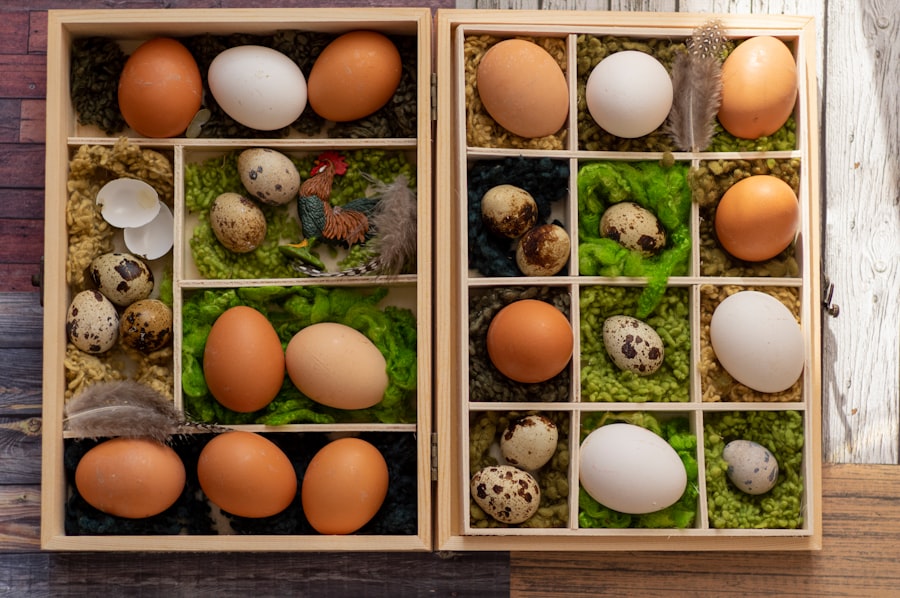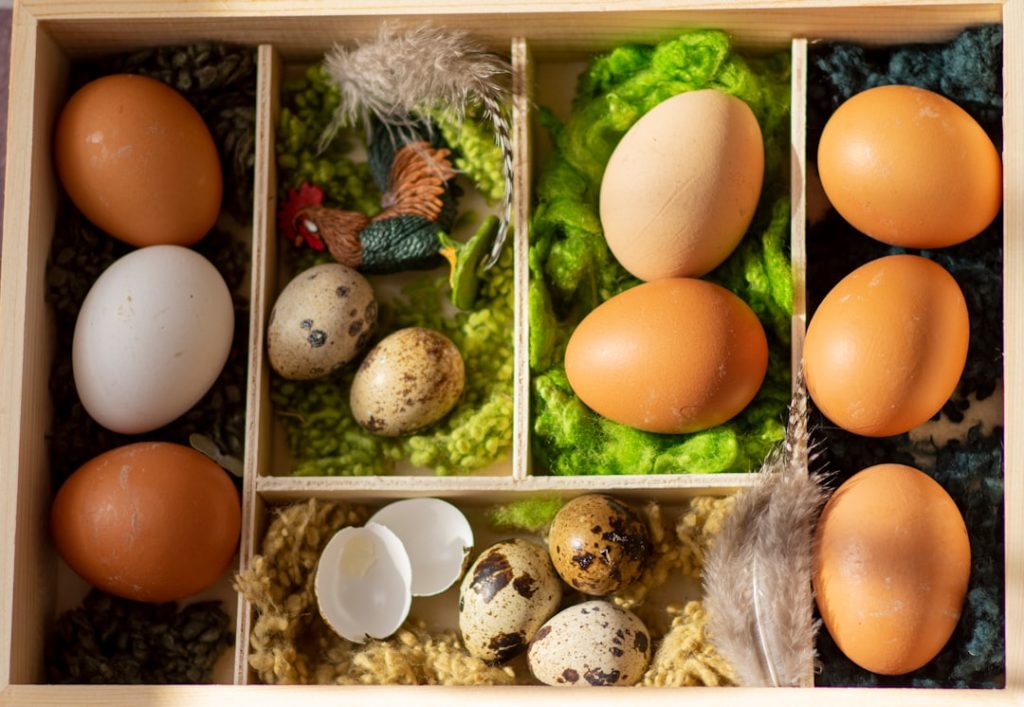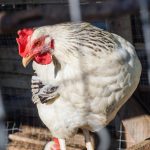Keeping chickens can be a rewarding and educational experience for individuals of all ages. This practice is possible in both rural and urban environments, offering benefits such as fresh eggs, natural pest control, and a connection to nature. Before starting, it is crucial to research local regulations and zoning laws to ensure compliance with chicken-keeping guidelines in your area.
Once legal requirements are met, selecting the appropriate chicken breed is the next step. Various breeds exist, each with distinct characteristics and egg production capabilities. Breeds often recommended for beginners include Rhode Island Reds, Plymouth Rocks, and Australorps.
Proper housing is essential for chicken care. This includes a secure coop with adequate ventilation, predator protection, and nesting boxes for egg-laying. An outdoor run should also be provided, offering sufficient space for the chickens to move freely and engage in natural behaviors such as scratching for insects and plants.
Maintaining chicken health requires a balanced diet, constant access to fresh water, and regular veterinary care. While keeping chickens demands daily attention and upkeep, many find the benefits outweigh the responsibilities involved.
Table of Contents
- 1 Daily Care and Maintenance
- 2 Coop and Run Cleaning
- 3 Health and Wellness
- 4 Egg Collection and Handling
- 5 Predator Prevention
- 6 Seasonal Considerations
- 7 FAQs
- 7.1 What are the basic tasks involved in keeping chickens?
- 7.2 How often do chickens need to be fed and watered?
- 7.3 How often does the chicken coop need to be cleaned?
- 7.4 How often do chicken eggs need to be collected?
- 7.5 What are some common health issues to watch out for in chickens?
- 7.6 How much time per day is typically required to care for chickens?
Key Takeaways
- Keeping chickens can be a rewarding experience and provide a sustainable source of fresh eggs.
- Daily care and maintenance of chickens includes providing fresh water, food, and checking for any signs of illness or injury.
- Regular cleaning of the coop and run is essential for maintaining a healthy environment for the chickens.
- Monitoring the health and wellness of chickens involves regular check-ups, vaccinations, and providing a balanced diet.
- Proper egg collection and handling techniques can help ensure the safety and quality of the eggs for consumption.
- Implementing predator prevention measures such as secure fencing and locking up the coop at night is crucial for protecting the chickens.
- Seasonal considerations, such as providing extra warmth in the winter and shade in the summer, are important for the well-being of the chickens.
Daily Care and Maintenance
Diet and Nutrition
Chickens need a balanced diet that includes a mix of commercial feed, grains, fruits, vegetables, and grit for digestion. Providing fresh water daily is also crucial, and it’s essential to ensure that the waterers are clean and free of debris.
Health and Hygiene
Regular health checks are vital to ensure that your chickens are thriving. This includes monitoring their weight, checking for signs of illness or injury, and observing their behavior for any changes. Chickens should also have access to a dust bath area where they can clean themselves and control parasites.
Living Conditions and Enrichment
It’s essential to keep an eye on their living conditions, such as the cleanliness of the coop and run, to prevent the spread of disease. Providing enrichment activities like perches, toys, and treats can help keep your chickens happy and stimulated. By attending to these aspects of chicken care, you can ensure that your chickens lead healthy and contented lives.
Coop and Run Cleaning

Maintaining a clean coop and run is crucial for the health and well-being of your chickens. A dirty environment can lead to the spread of disease and parasites, so regular cleaning is essential. The coop should be cleaned at least once a week, with soiled bedding removed and replaced with fresh bedding.
Nesting boxes should also be cleaned regularly to prevent the buildup of bacteria and pests. Additionally, the coop should be well-ventilated to prevent moisture buildup and ammonia levels from rising. The outdoor run should also be cleaned regularly to remove droppings, old food, and debris.
This can be done by raking or using a shovel to scoop up the waste. Adding fresh bedding or straw to the run can help absorb moisture and control odors. It’s also important to regularly inspect the run for any signs of wear or damage that could allow predators to enter.
Overall, maintaining a clean coop and run is essential for the health and happiness of your chickens.
Health and Wellness
Maintaining the health and wellness of your chickens is essential for their longevity and productivity. Regular veterinary check-ups are important to monitor for any signs of illness or disease. Common health issues in chickens include respiratory infections, parasites, and egg binding in hens.
It’s important to familiarize yourself with the signs of illness in chickens so that you can take prompt action if needed. In addition to veterinary care, providing a balanced diet, clean living conditions, and access to fresh water is essential for maintaining the overall wellness of your flock. It’s also important to provide opportunities for exercise and mental stimulation, such as perches, toys, and access to the outdoors.
Finally, practicing good biosecurity measures can help prevent the spread of disease within your flock. This includes quarantining new birds before introducing them to your existing flock and limiting exposure to wild birds or other potential carriers of disease. Overall, maintaining the health and wellness of your chickens requires a proactive approach to care and management.
Egg Collection and Handling
Collecting eggs is one of the most rewarding aspects of keeping chickens. To ensure that your eggs are fresh and clean, it’s important to collect them daily. Eggs should be collected from the nesting boxes and placed in a clean container or egg carton.
It’s important to handle eggs gently to prevent cracking or damaging the shells. Once collected, eggs should be stored in a cool, dry place away from direct sunlight. It’s important to use eggs within a reasonable timeframe to ensure their freshness and quality.
If you plan to sell or share your eggs with others, it’s important to familiarize yourself with local regulations regarding egg sales and handling. Overall, proper egg collection and handling practices are essential for ensuring that you have a steady supply of fresh, high-quality eggs.
Predator Prevention

Securing the Coop
To prevent attacks from predators, it’s essential to secure the coop with sturdy locks and hardware cloth to prevent entry. This will help keep predators out and your chickens safe inside.
Reinforcing the Run
Additionally, reinforcing the run with buried wire mesh can help prevent digging predators from gaining access. Regular inspections of the coop and run are also necessary to identify any signs of wear or damage that could allow predators to enter.
Good Husbandry Practices
Providing your chickens with a safe retreat within the coop can also help protect them from aerial predators such as hawks. Furthermore, practicing good husbandry practices such as locking up your chickens at night can help prevent attacks from nocturnal predators. Overall, predator prevention is essential for keeping your chickens safe from harm.
Seasonal Considerations
Caring for chickens involves considering seasonal changes and how they may impact your flock. In the winter months, it’s important to provide additional insulation in the coop to keep your chickens warm. This can include adding extra bedding, sealing drafts, and providing supplemental heat if necessary.
It’s also important to ensure that your chickens have access to fresh water that doesn’t freeze. In the summer months, it’s important to provide shade and ventilation in the coop and run to prevent overheating. Providing frozen treats or ice blocks can also help keep your chickens cool during hot weather.
Additionally, it’s important to monitor for signs of heat stress in your flock and take steps to mitigate it if necessary. Overall, considering seasonal changes is essential for providing optimal care for your chickens throughout the year. In conclusion, keeping chickens requires a commitment to daily care and maintenance, but the rewards are well worth the effort.
By providing a clean living environment, a balanced diet, regular veterinary care, and protection from predators, you can ensure that your flock remains healthy and productive. Whether you’re raising chickens for eggs or simply enjoying their company as pets, caring for these feathered friends can provide you with a deeper connection to the natural world and a sense of fulfillment in knowing that you’re providing them with a happy and healthy life.
If you’re considering keeping chickens, you may be wondering how much work is involved in caring for them. According to a recent article on PoultryWizard.com, maintaining a chicken coop and ensuring the health and well-being of your flock does require some effort, but the rewards of fresh eggs and the joy of raising chickens can make it all worthwhile. The article also provides helpful tips and resources for new chicken owners, such as the importance of a well-designed coop and the benefits of providing a varied diet for your feathered friends.
FAQs
What are the basic tasks involved in keeping chickens?
The basic tasks involved in keeping chickens include providing food and water, cleaning the coop, collecting eggs, and monitoring the health of the chickens.
How often do chickens need to be fed and watered?
Chickens need to be fed and watered daily. They require access to fresh water at all times and should be fed a balanced diet of chicken feed, supplemented with kitchen scraps and occasional treats.
How often does the chicken coop need to be cleaned?
The chicken coop should be cleaned regularly to maintain a healthy environment for the chickens. This typically involves removing soiled bedding, replacing it with fresh bedding, and cleaning any droppings or debris.
How often do chicken eggs need to be collected?
Chicken eggs should be collected daily to prevent them from being damaged or eaten by the chickens. Regular egg collection also helps to keep the nesting boxes clean.
What are some common health issues to watch out for in chickens?
Common health issues in chickens include respiratory infections, parasites, and injuries. It’s important to monitor the chickens for signs of illness and seek veterinary care when necessary.
How much time per day is typically required to care for chickens?
Caring for chickens typically requires about 30 minutes to an hour of time per day. This includes feeding, watering, cleaning the coop, and checking on the chickens’ overall well-being.
Meet Walter, the feathered-friend fanatic of Florida! Nestled in the sunshine state, Walter struts through life with his feathered companions, clucking his way to happiness. With a coop that’s fancier than a five-star hotel, he’s the Don Juan of the chicken world. When he’s not teaching his hens to do the cha-cha, you’ll find him in a heated debate with his prized rooster, Sir Clucks-a-Lot. Walter’s poultry passion is no yolk; he’s the sunny-side-up guy you never knew you needed in your flock of friends!







